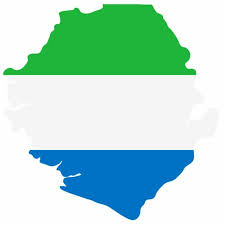As Sierra Leone navigates the complexities of its socio-political landscape, the horizon of 2028 emerges as a beacon of hope for many citizens yearning for transformative leadership. The anticipation of a “political redeemer” underscores the collective aspiration for a future marked by unity, progress, and equitable development.
Historical Context and Political Evolution
Sierra Leone’s political journey has been characterized by alternating periods of stability and turbulence. The two dominant political entities, the Sierra Leone People’s Party (SLPP) and the All People’s Congress (APC), have historically vied for supremacy, each leaving indelible marks on the nation’s trajectory. The 2023 general elections, marred by controversies and disputes, highlighted the urgent need for electoral reforms and transparent governance. In response, the establishment of the Tripartite Committee aimed to address these challenges, though its effectiveness has been a subject of debate.
Socio-Economic Challenges
The socio-economic fabric of Sierra Leone is woven with threads of resilience and adversity. A significant portion of the population grapples with poverty, limited access to quality education, and inadequate healthcare services. The nation’s heavy reliance on rice imports has not only strained the economy but also exposed vulnerabilities in food security. Initiatives to bolster local rice production are underway, yet achieving self-sufficiency remains an uphill battle.
Cultural Richness Amidst Adversity
Despite these challenges, Sierra Leone’s cultural heritage stands as a testament to its enduring spirit. The nation’s rich tapestry of dance, music, and culinary traditions fosters a sense of identity and community. Religious harmony further exemplifies the nation’s commitment to unity amidst diversity.
The Quest for Transformative Leadership
As 2028 approaches, the clamour for leaders who embody integrity, vision, and inclusivity grows louder. The electorate’s desire for a departure from traditional political dynamics is evident. Figures like Dr. Samura Kamara of the APC have articulated visions aimed at national development, emphasizing the need for economic revitalization and social cohesion. Similarly, calls for the inclusion of youthful flagbearers in the political arena reflect a broader aspiration for innovation and fresh perspectives in governance.
Bridging Divides and Fostering Unity
The spectre of tribalism poses a significant challenge to national unity. The emergence of leaders from diverse ethnic backgrounds offers an opportunity to bridge divides and promote inclusivity. For instance, the candidacies of Chernoh Maju Bah (APC) and Juldeh Jalloh (SLPP), both of Fula descent, underscore the potential for transcending ethnic affiliations in favour of national interest.
The Road Ahead: Challenges and Opportunities
The path to 2028 is fraught with both challenges and opportunities. The government’s commitment to “bold action” and delivery, as articulated by President Julius Maada Bio, sets an ambitious agenda for national development. However, translating this vision into tangible outcomes requires concerted efforts, transparent policies, and active citizen engagement.
The anticipation of a “political redeemer” in 2028 encapsulates the collective hope of Sierra Leoneans for a future defined by justice, prosperity, and unity. While the journey is laden with obstacles, the nation’s resilience, cultural richness, and unwavering spirit serve as pillars upon which this envisioned future can be built. As the political landscape evolves, the onus lies on both leaders and citizens to champion the principles of democracy, inclusivity, and sustainable development, ensuring that the promise of 2028 becomes a reality for all Sierra Leoneans.










